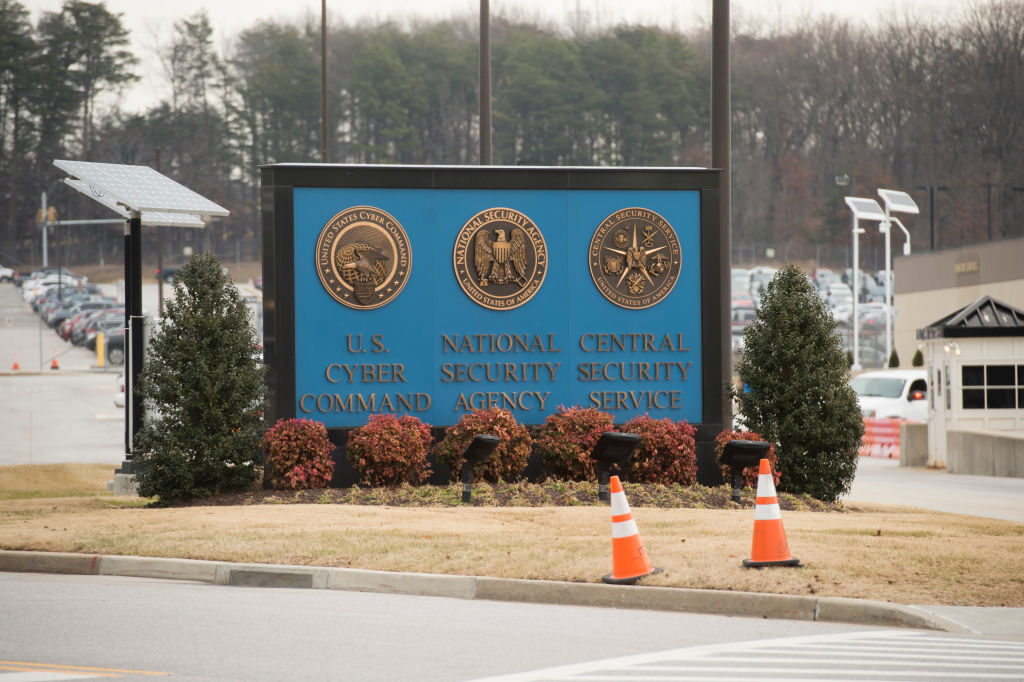Trump's Pentagon is making a lame-duck bid to split U.S. Cyber Command from the NSA


A free daily email with the biggest news stories of the day – and the best features from TheWeek.com
You are now subscribed
Your newsletter sign-up was successful
Acting Defense Secretary Chris Miller and other top acting appointees President Trump installed at the Pentagon following a post-election purge are pushing to separate U.S. Cyber Command from the National Security Agency, both currently overseen by Army Gen. Paul Nakasone, Defense One first reported. The last-minute overhaul of the U.S. national security structure is being pursued in the last month of Trump's presidency, as the U.S. government tries to assess the extent of a massive cyber-espionage breach by Russia, and Congress isn't thrilled.
There's been discussion for years about when U.S. Cyber Command, the military's digital war-fighting branch launched in 2009, will be uncoupled from the NSA, the nation's largest spy agency, in charge of collecting foreign signals intelligence. Nakasone — a four-star general "beloved by both Democrats and Republicans," Politico notes — leads both agencies under a "dual hat" arrangement.
"Our government is currently responding to a cyberincident where a sophisticated adversary had access to thousands of U.S. networks," Sens. Angus King (I-Maine) and Ben Sasses (R-Neb.) said in a joint statement Sunday with fellow cybersecurity panelists Reps. Mike Gallagher (R-Wis.) and Jim Langevin (D-R.I.). "Regardless of whether it's better to keep or end the dual-hat arrangement between NSA and CYBERCOM, now is not the time to do it."
The Week
Escape your echo chamber. Get the facts behind the news, plus analysis from multiple perspectives.

Sign up for The Week's Free Newsletters
From our morning news briefing to a weekly Good News Newsletter, get the best of The Week delivered directly to your inbox.
From our morning news briefing to a weekly Good News Newsletter, get the best of The Week delivered directly to your inbox.
The two agencies cannot legally be split apart until the defense secretary and chairman of the joint chiefs of staff — currently Gen. Mark Milley — certify that separation wouldn't diminish the effectiveness of Cyber Command. One U.S. official told The Wall Street Journal the proposal is "very preliminary" and a meeting on it is scheduled for this week. But "with Miller expected to sign off on the move, the fate of the proposal ultimately falls to Milley, who told Congress in 2019 that the dual-hat leadership structure was working and should be maintained," Defense One reports.
"Chairman Milley has not reviewed nor endorsed any recommendation to split CYBERCOM and NSA," a spokesman said. Milley reportedly received the proposal last week. "A defense official cautioned that even if the leadership change should go through, President-elect Joe Biden and his defense team could simply reverse the decision and rejoin the offensive digital unit and the intelligence gathering organization," Politico reports.
A free daily email with the biggest news stories of the day – and the best features from TheWeek.com
Peter has worked as a news and culture writer and editor at The Week since the site's launch in 2008. He covers politics, world affairs, religion and cultural currents. His journalism career began as a copy editor at a financial newswire and has included editorial positions at The New York Times Magazine, Facts on File, and Oregon State University.
-
 Switzerland could vote to cap its population
Switzerland could vote to cap its populationUnder the Radar Swiss People’s Party proposes referendum on radical anti-immigration measure to limit residents to 10 million
-
 Political cartoons for February 15
Political cartoons for February 15Cartoons Sunday's political cartoons include political ventriloquism, Europe in the middle, and more
-
 The broken water companies failing England and Wales
The broken water companies failing England and WalesExplainer With rising bills, deteriorating river health and a lack of investment, regulators face an uphill battle to stabilise the industry
-
 Key Bangladesh election returns old guard to power
Key Bangladesh election returns old guard to powerSpeed Read The Bangladesh Nationalist Party claimed a decisive victory
-
 Epstein files topple law CEO, roil UK government
Epstein files topple law CEO, roil UK governmentSpeed Read Peter Mandelson, Britain’s former ambassador to the US, is caught up in the scandal
-
 Iran and US prepare to meet after skirmishes
Iran and US prepare to meet after skirmishesSpeed Read The incident comes amid heightened tensions in the Middle East
-
 EU and India clinch trade pact amid US tariff war
EU and India clinch trade pact amid US tariff warSpeed Read The agreement will slash tariffs on most goods over the next decade
-
 Israel retrieves final hostage’s body from Gaza
Israel retrieves final hostage’s body from GazaSpeed Read The 24-year-old police officer was killed during the initial Hamas attack
-
 China’s Xi targets top general in growing purge
China’s Xi targets top general in growing purgeSpeed Read Zhang Youxia is being investigated over ‘grave violations’ of the law
-
 Panama and Canada are negotiating over a crucial copper mine
Panama and Canada are negotiating over a crucial copper mineIn the Spotlight Panama is set to make a final decision on the mine this summer
-
 Why Greenland’s natural resources are nearly impossible to mine
Why Greenland’s natural resources are nearly impossible to mineThe Explainer The country’s natural landscape makes the task extremely difficult
